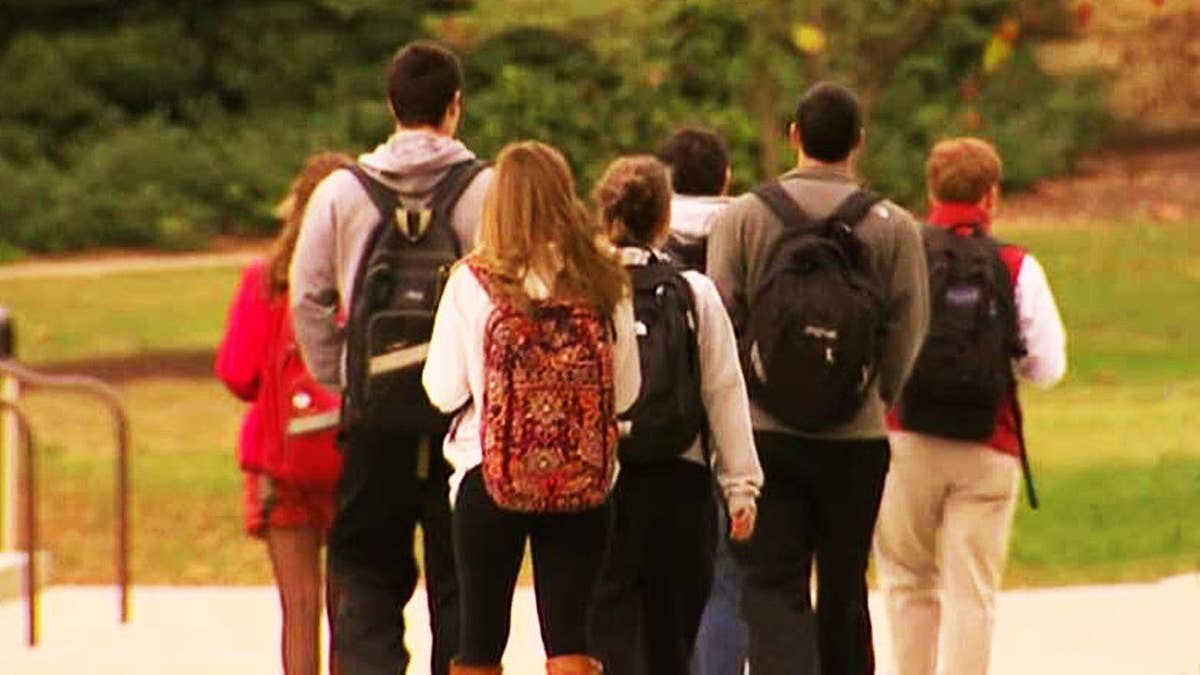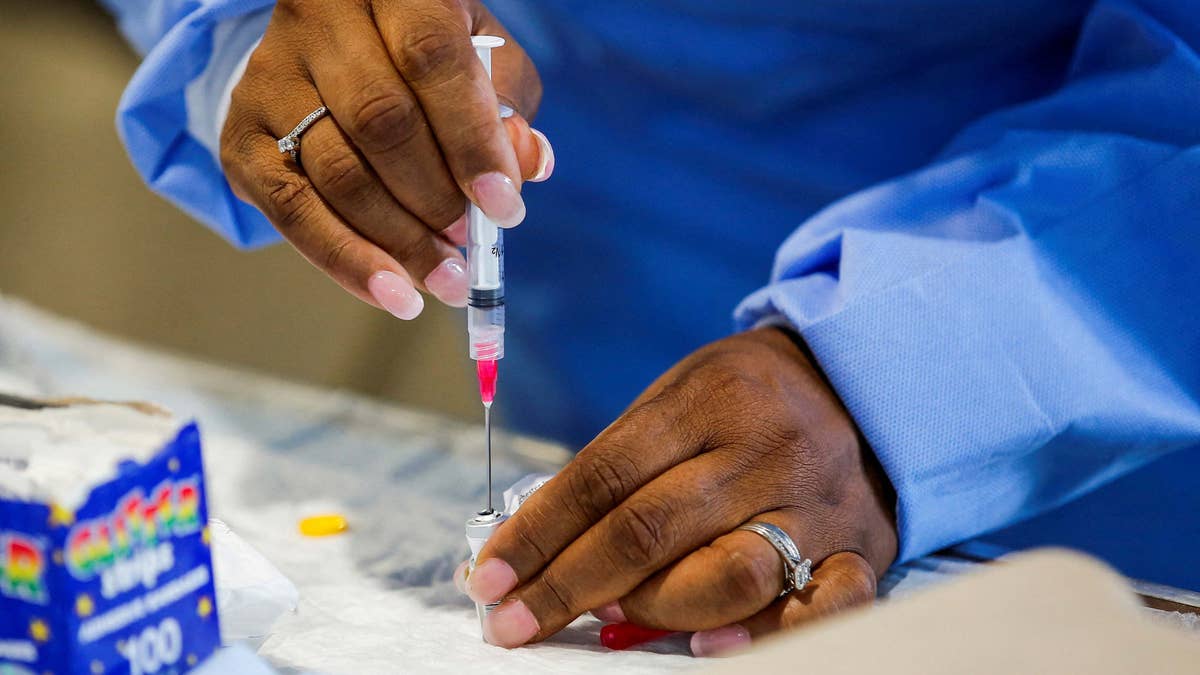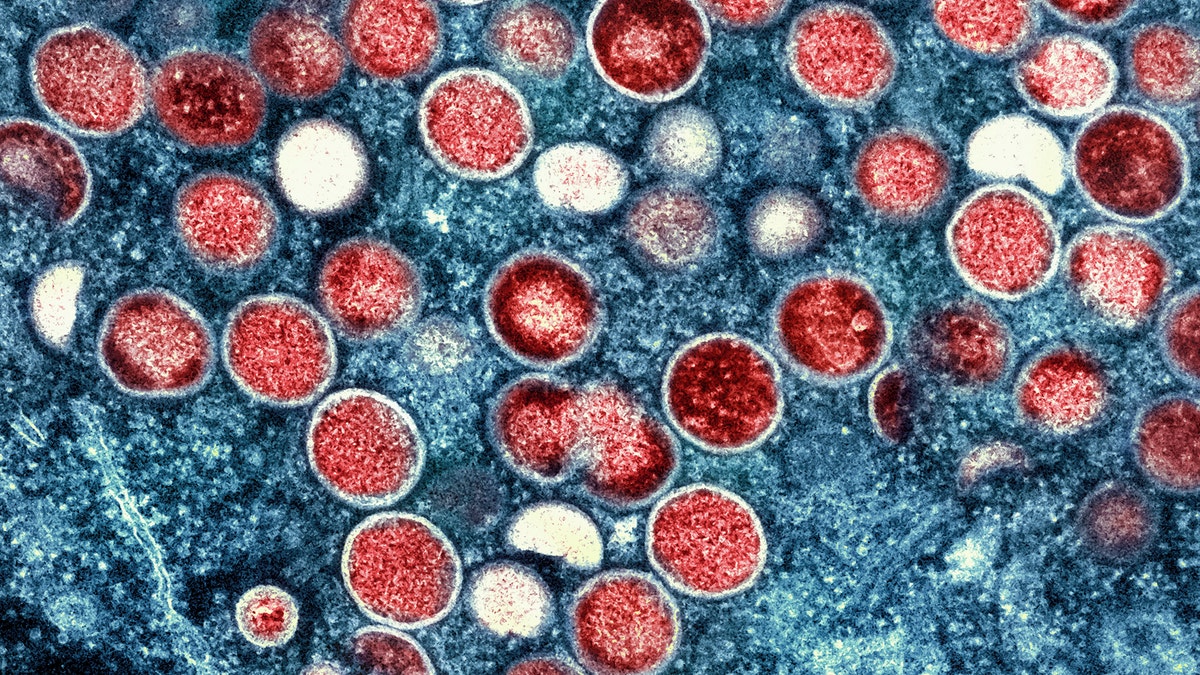Dr. Marc Siegel: What is monkeypox and how does it spread?
Fox News medical contributor says he's concerned the public health radar is 'broken' after COVID on 'Tucker Carlson Tonight.'
The COVID-19 virus is not the only virus on college students' minds as they head back to school this fall. Students also have to deal with strategies to prevent the potential transmission of the monkeypox virus.
"Monkeypox is still shrouded in a lot of mystery. A key point is that this is not a conventional sexually transmitted virus," said Michael S. Kinch, Ph.D., dean of science and director of the Center for Research Innovation in Biotechnology at Long Island University in Brookville, N.Y.
Kinch also told Fox News Digital, "The pathogen can be transferred via perspiration and so, any form of body contact, in theory, can result in transmission."
He also said, "One might easily extrapolate that the risk of monkeypox will be considerably higher once colleges and high schools resume."
Some college students told Fox News Digital they are nervous about yet another virus impacting their area of the country.

Today, some are thinking about monkeypox and how they need to be aware of keeping themselves safe from the infectious disease. (REUTERS/Rebecca Noble/iStock)
One student at New York University (NYU) said that she is a little nervous about monkeypox, since she goes to a school in a city where most of the cases in the country are being reported.
She added that she finds comfort in knowing a vaccine is available.
Another student who is attending SUNY Stony Brook this fall said she is just going to be more careful about who she "hangs out with." She also said she hopes that colleges provide more information about the virus and services available to students when the school year starts.
Shared spaces mean more care is needed
College students typically congregate in shared spaces such as classrooms and dorm rooms and at parties.
The start of the sports season will also likely encourage physical contact between student athletes.

As college semesters kick off, students are understanding they need to take smart precautions against the monkeypox virus. (iStock)
Infectious disease specialists told Fox News Digital that while infectious diseases are part of society, that doesn't mean people shouldn't socialize or be around others.
WILL MONKEYPOX BECOME AN ‘ESTABLISHED STD’? WHY ONE INFECTIOUS DISEASE EXPERT THINKS SO
Individuals just have to take certain measures to ensure safety.
"Right now there is an increased risk of monkeypox, but that doesn't mean young people can't socialize or enjoy their college experience. It will just change how they do those things, for right now, while the risk of infection is higher," said Richard Silvera, M.D.
"Limit skin-to-skin contact to people you know or folks with whom you can discuss your risks and their risks."
He is associate program director of the Infectious Diseases Fellowship and assistant professor of medicine (infectious diseases) at the Icahn School of Medicine at Mount Sinai in New York City.
Silvera listed some of the strategies that college students might adopt to prevent monkeypox transmission.
COVID SITES IN NYC TRANSITION TO MONKEYPOX VIRUS
He said, "Socialize with social distancing. Limit skin-to-skin contact to people you know or folks with whom you can discuss your risks and their risks. If you feel unwell — or that something is wrong — don't ignore it. Stay home and seek out care to make sure you're OK."

It's "extremely important" for college students this fall "to be very careful" about staying safe from infectious diseases, said one expert. (AP Images)
Aaron E. Glatt, M.D., chair of the department of medicine and chief of infectious diseases at Mount Sinai South Nassau on Long Island, N.Y., told Fox News Digital, "It’s extremely important for kids at college — whether they are having contact with a person through a sexual nature or sharing various items with a roommate who has lesions or is at risk for having lesions — to be very careful."
Glatt said the main way monkeypox is spread is through contact with a person who is contagious and who has lesions.
Those who engage in casual sexual encounters with unfamiliar partners are putting themselves at risk of contracting monkeypox, as well as other diseases, said one expert.
At this point in time, the vast majority of cases involve men who are having sex with men or often with multiple partners or in casual encounters, he also said.
Glatt cautioned that those who engage in casual sexual encounters with unfamiliar partners are putting themselves at risk of contracting monkeypox, as well as other diseases.
"These patients are at the highest risk because you don’t know their history, you don’t know if they’ve been sick [and] you don’t have a relationship with them where you don’t know if they have or had lesions," said Glatt.
WHY SCIENTISTS ARE STUDYING WASTEWATER TO LEARN MORE ABOUT MONKEYPOX, OTHER DISEASES
Therefore, he added, "that type of exposure is something that should always be cautioned against because of other sexually transmitted diseases or other medical issues that can come up."
Silvera also told Fox News Digital that it is important for college students to "discuss your risks, possible exposures and any skin lesions you might have with people you will be in intimate contact with."

The JYNNEOS smallpox and monkeypox vaccine is pictured here at the Pima County Department of Public Health at Abrams Public Health Center in Tucson, Arizona, on August 20, 2022. (REUTERS/Rebecca Noble)
In a college dorm setting, he added, "this might include roommates and lab partners. Most importantly, if you have a new skin lesion and/or don't feel well, stay home!"
"Whether it's monkeypox, COVID-19 or just the common cold, staying home when you're sick is one of the best ways to protect those around you."
Silvera noted that monkeypox could also be spread through soft objects like towels, linens and clothing.
"When you do laundry, washing items on hot (with detergent!) should decontaminate them."
So, "to reduce your risk and protect the people around you, don't share towels, clothes or bed linens. When you do laundry, washing items on hot (with detergent!) should decontaminate them."
The infectious disease doctor also recommended wearing gloves and washing your hands after handling someone else's unwashed clothing or linens.

"Parents can be reassured that the risk of monkeypox is low in the general student population," said one emergency physician.
Dr. Matthew Harris, M.D., a pediatric emergency medicine attending physician at Cohen Children’s Medical Center at Northwell Health on Long Island, N.Y., told Fox News Digital, "If there is concern for exposure to linens or clothes of an infected individual, it would be prudent for the exposed person to speak with their medical provider regarding a post-exposure prophylactic vaccination."
Harris, director of the COVID-19 vaccination program and Northwell crisis management, tried to ease the concerns of worried parents and students.
"In general, parents can be reassured that the risk of monkeypox is low in the general student population."
DOG INFECTED WITH MONKEYPOX AFTER SHARING BED, LICKING OWNERS
"Most monkeypox cases continue to be in the population of men who have sex with men, and as such, adolescents or college students who fit into this group should consider appropriate vaccination and precautions."
Just this week, Dr. Mary T. Bassett, N.Y. state health commissioner, announced that the monkeypox vaccine will start being distributed intradermally (in between the skin) instead of subdermally (under the skin).

A dose of the monkeypox vaccine is loaded into a syringe by a medical worker at Westchester Medical Center in Valhalla, N.Y, on July 28, 2022. (REUTERS/Eduardo Munoz)
This means that only one-fifth of the dosage of the initial monkeypox vaccine will be needed to spark an effective immune response against the virus.
Bassett said in a press release, "Our primary goal is to prevent the spread of this virus by increasing the immunity of as many at-risk individuals as possible."
She also said, "This latest delivery of vaccine vials from the federal government, delivered by the newly authorized method of administration, will mean more vaccine doses for more people."
The CDC recommends that anyone who is exposed to monkeypox get vaccinated.
Currently, the Centers for Disease Control and Prevention (CDC) recommends that anyone who is exposed to monkeypox get vaccinated.
Monkeypox can spread from the following issues and actions, according to the CDC: close, skin-to-skin contact with a person who has a rash or scabs from monkeypox; hugging, cuddling, massages or close contact sports; saliva droplets during close conversation and kissing; sexual contact; contact with objects, fabrics (clothing, bedding or towels), and surfaces that have been used by someone with monkeypox.
Tips for taking good care
If you come into contact with a person who has monkeypox, the CDC suggested a number of smart tips.

This file image provided by the National Institute of Allergy and Infectious Diseases (NIAID) shows a colorized transmission electron micrograph of monkeypox particles (red) found within an infected cell (blue), cultured in the laboratory that was captured and color-enhanced at the NIAID Integrated Research Facility (IRF) in Fort Detrick, Maryland. (NIAID via AP, File)
If within six feet of that person, wear a mask; do not share silverware or cups; do not touch that individual's sheets, blankets, towels or clothing.
If you do touch any of these things, you should wash your hands with soap and water or use an alcohol-based hand sanitizer.
CLICK HERE TO SIGN UP FOR OUR LIFESTYLE NEWSLETTER
If you suspect you have monkeypox, the CDC recommends the following tips: Wear a mask and cover lesions with bandages; avoid touching others and follow a healthcare provider’s recommendations; wash your hands often and avoid touching your eyes; wear glasses instead of contact lenses; stay in a space away from others until your rash has healed, all scabs have fallen off and a fresh layer of intact skin has formed.
CLICK HERE TO GET THE FOX NEWS APP
In addition, it's wise to clean and disinfect areas frequently.
Also, avoid contact with pets and with people who are more likely to get very sick, such as children under 8 years old, people who are pregnant and people who have weakened immune systems or certain skin conditions.










































